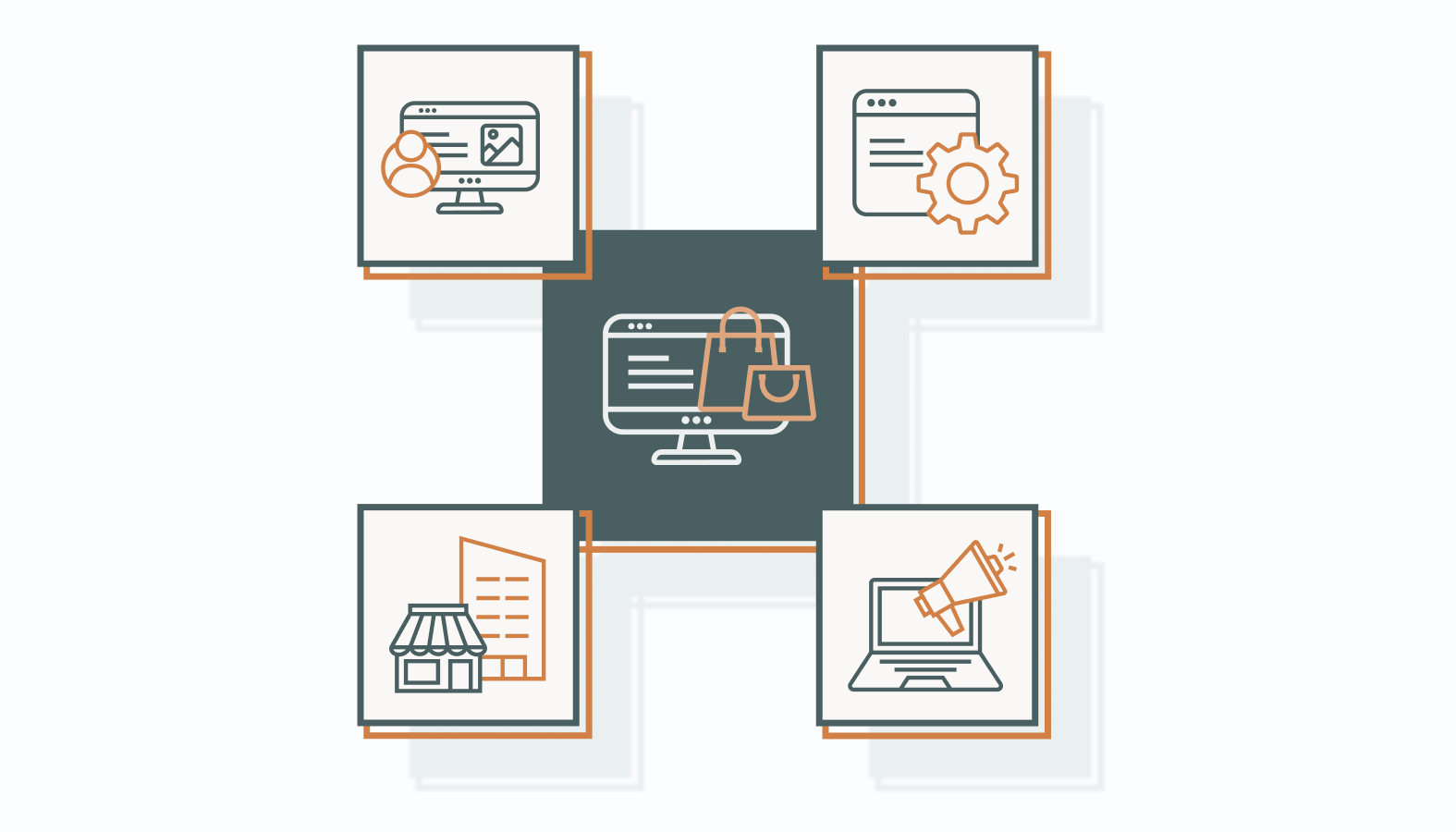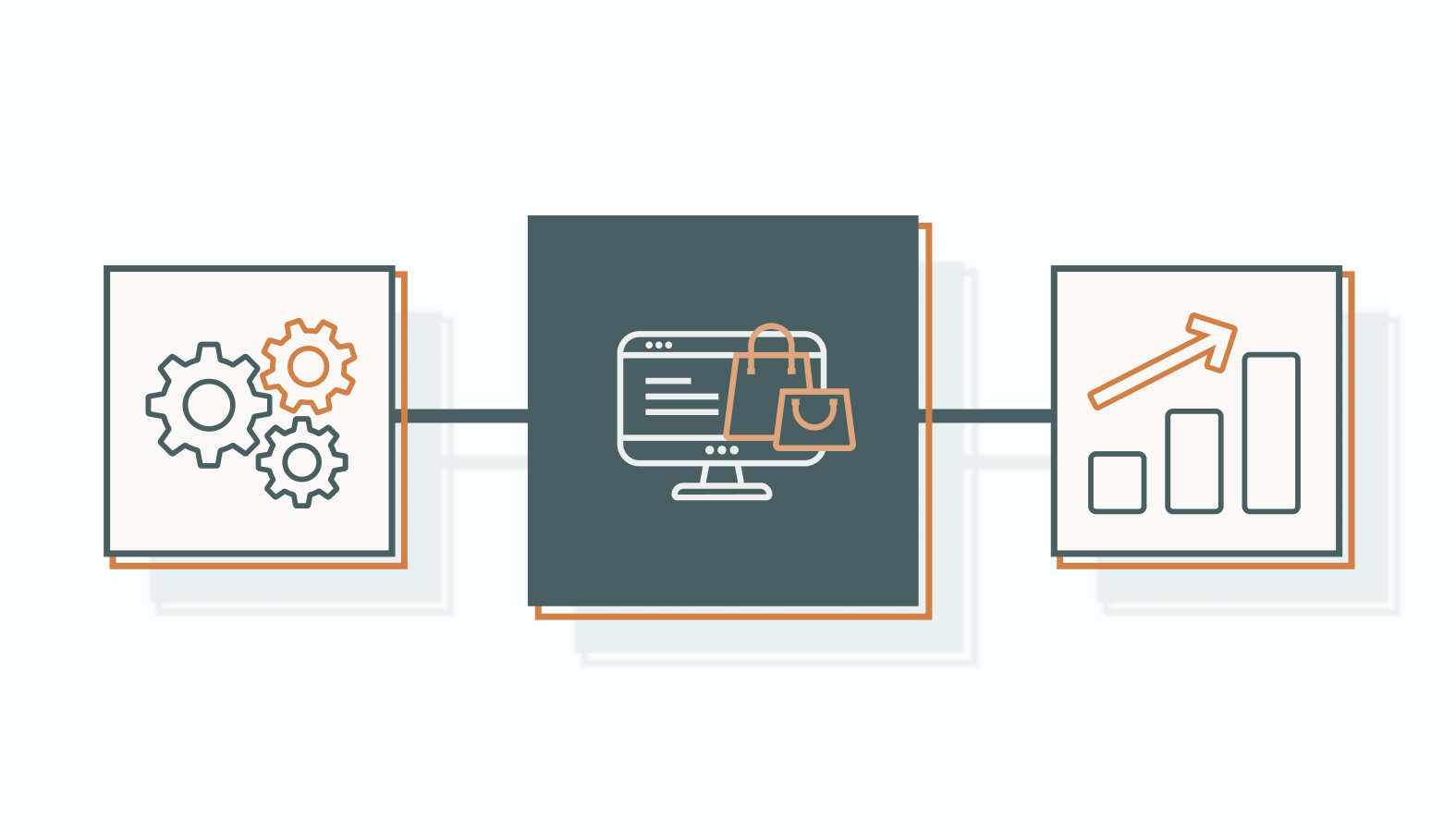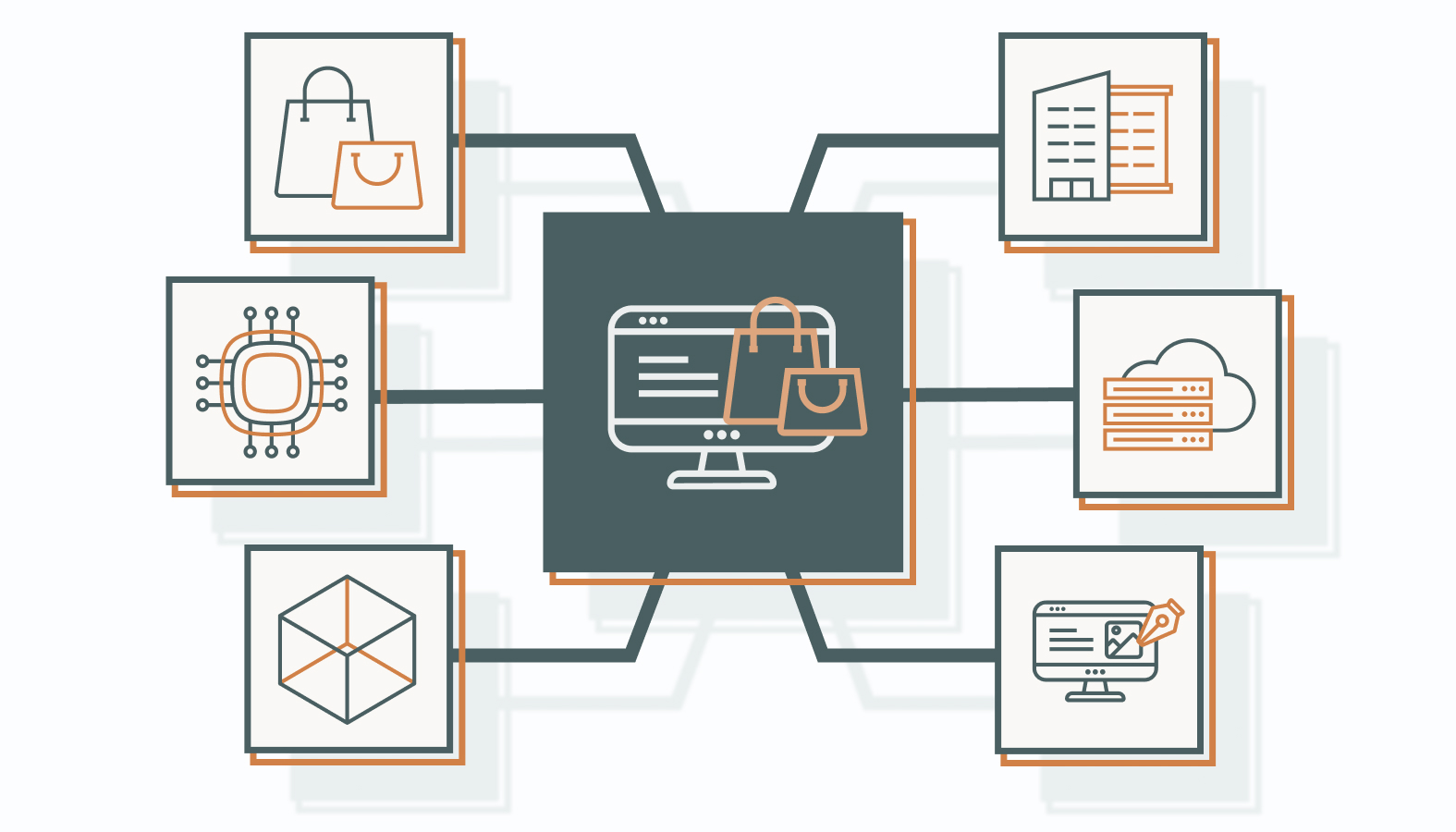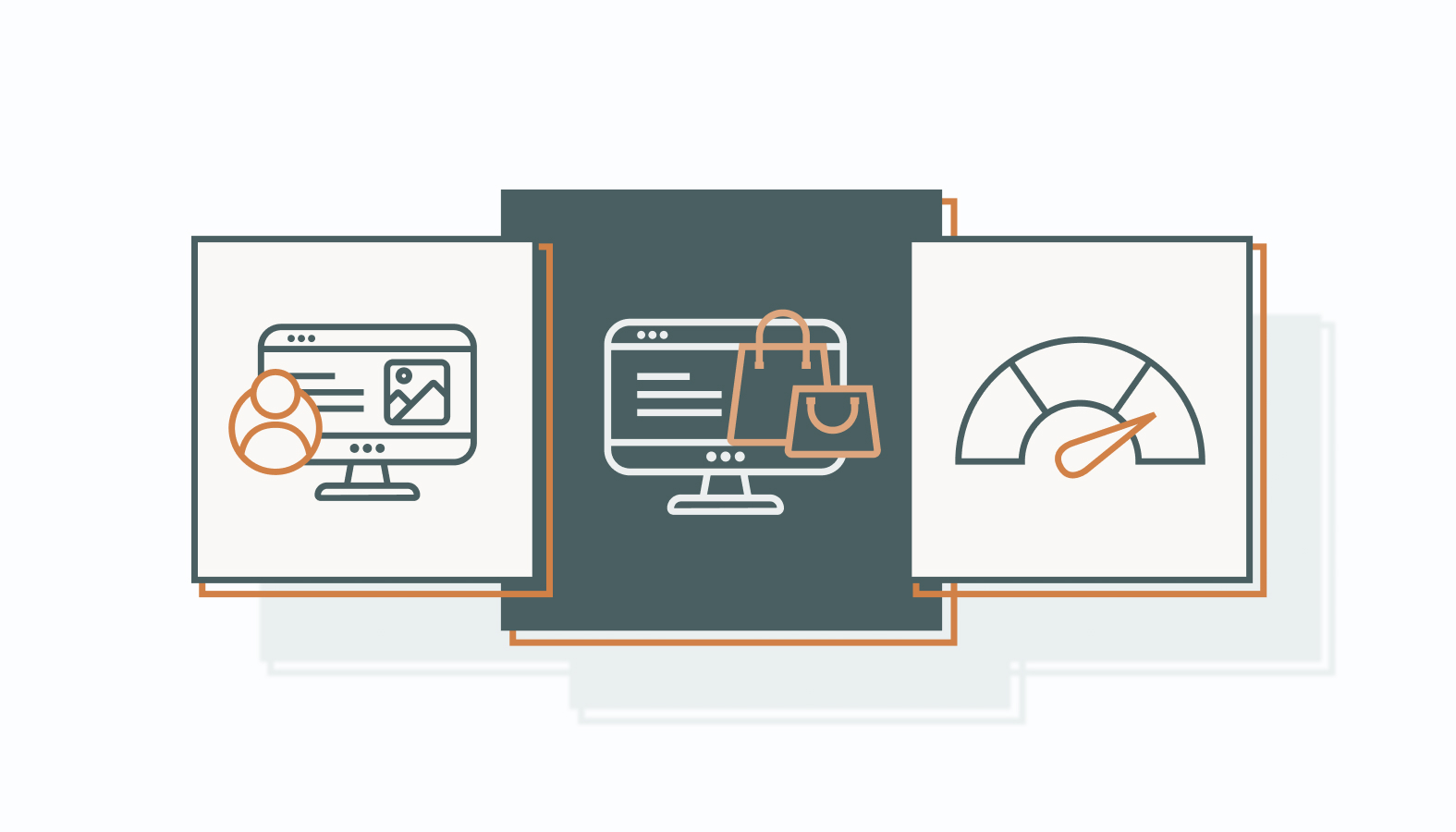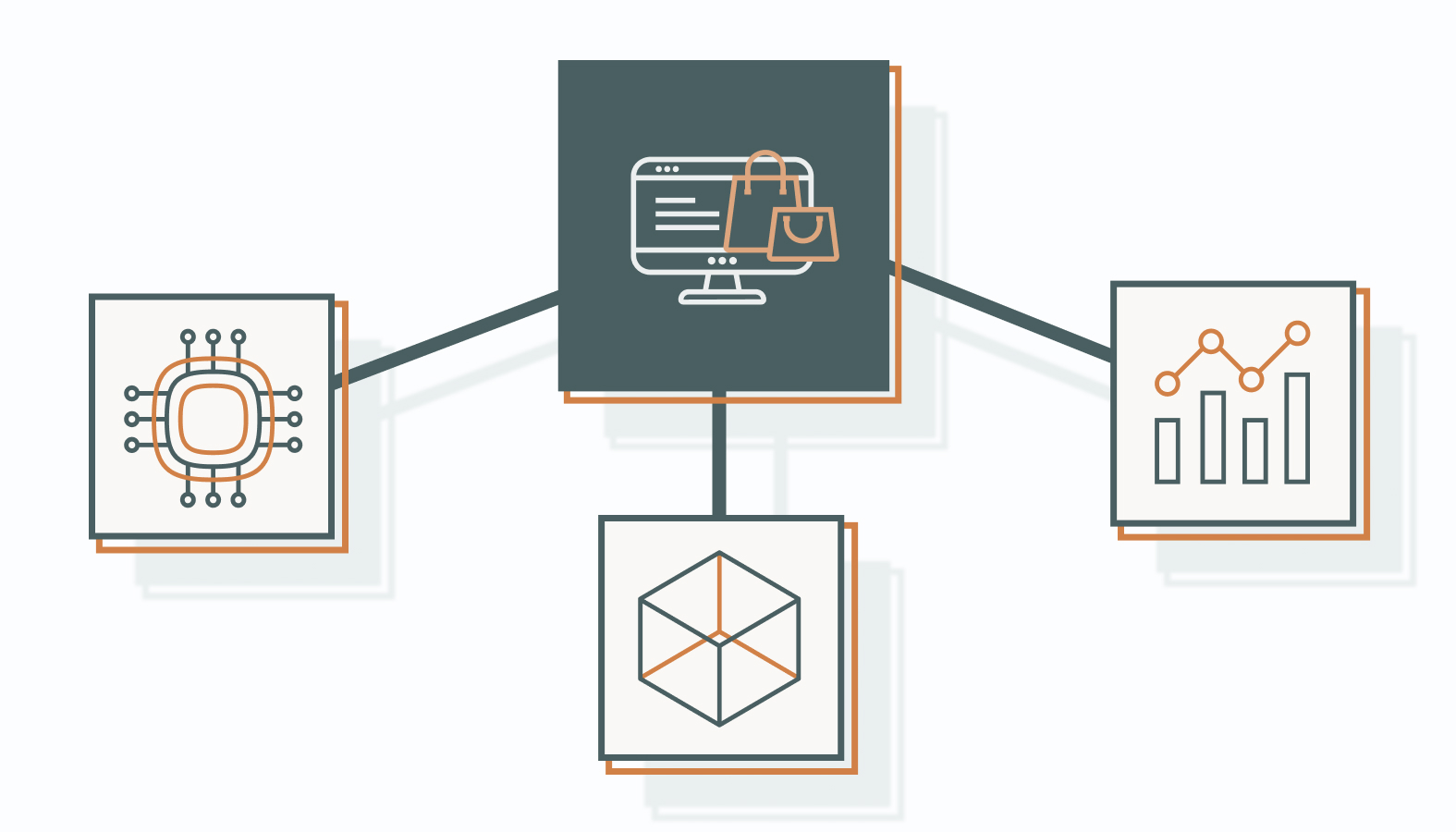The CMS you choose will either power your growth or quietly cap it.
In 2025, ecommerce platforms aren’t just managing content; they’re orchestrating customer experiences, automating operations, and driving real revenue. Without a system built to scale, personalize, and integrate with the future, you’re playing catch-up.
The challenge? Every CMS claims it can do everything, but not all are crafted with your business model, growth plans, or tech stack in mind.
This guide unpacks what makes an ecommerce content management system truly effective, compares top-tier platforms, and outlines the features that matter most for conversion, retention, and scale.
Whether you’re fine-tuning a mature storefront or mapping out your first digital build, this is the practical, future-ready framework your team needs.
Exploring Ecommerce Content Management Systems
In online retail, your content management system should be running the show.
An ecommerce CMS powers everything from product data to checkout workflows, acting as mission control for your entire storefront. This platform must be sharp, reliable, and built for commerce from the ground up.
What is an Ecommerce CMS?
An ecommerce content management system is purpose-built software that manages your digital storefront. Unlike traditional CMS platforms that focus on publishing static content, an ecommerce CMS comes equipped to handle complex retail functions like product catalogs, sales transactions, and customer engagement — all in one dashboard.
This platform manages the heavy lifting. It organizes product listings, processes payments, and facilitates customer communication with precision and speed. The result is streamlined workflows, smarter data management, and a better experience for your customers every step of the way.
The real advantage lies in operational clarity.
With the right ecommerce CMS, you spend less time untangling tech issues and more time focusing on growth. It gives you the infrastructure to scale, the flexibility to adapt, and the tools to build a shopping experience that keeps customers coming back.
An ecommerce CMS brings efficiency, control, and speed to the table. And in today’s crowded digital marketplace, that edge makes all the difference if you’re serious about scaling or staying competitive.
Why a Specialized Ecommerce CMS Is Worth It
The right ecommerce CMS doesn’t just run your store; it pushes it forward.
From smoother workflows to sharper marketing, it gives your business the tools to move faster, convert more, and stay ready for what’s next.
-
Sharper User Experience, Higher Conversions
A modern CMS does more than display products. It shapes how customers interact with your brand.
With built-in personalization, A/B testing, and streamlined navigation, you can fine-tune every click, swipe, and scroll. The result is a frictionless path from interest to checkout that turns casual browsers into repeat buyers.
-
Better Backend, Smarter Operations
Automating inventory updates, syncing product data, or sending targeted email campaigns shouldn’t be your team’s daily grind.
A well-built CMS takes those manual tasks off your plate. That means fewer errors, faster turnarounds, and more bandwidth for your team to focus on strategy, growth, and customer experience.
-
Built to Scale as You Grow
Growth is great, unless your platform can’t keep up.
A scalable ecommerce CMS handles surges in traffic, new product lines, and expanding catalogs without breaking stride.
Whether adding a few SKUs or entering a new market, your system stays steady while you scale.
-
Marketing and SEO, Baked Right In
Good marketing isn’t an add-on.
A specialized CMS has tools to boost your visibility and drive demand, such as SEO-optimized URLs, auto-generated meta tags, and product promotion features that sync with your campaigns.
This results in better search rankings, stronger traffic, and more chances to convert.
Essential Features of a High-Performance Ecommerce CMS
A powerful ecommerce CMS is built to keep your store running with precision and efficiency.
Here are the core features and strategic components that make a top-tier CMS indispensable:
Core Operational Capabilities
-
Product Management and Cataloging
With an ecommerce CMS, businesses can effortlessly add, categorize, and manage product data.
From detailed descriptions and images to technical specifications, this feature ensures that products are displayed clearly and accurately.
A streamlined product catalog enhances user experience, allowing customers to find exactly what they’re looking for with ease.
-
Order Processing and Customer Management
A well-integrated ecommerce CMS smooths out the entire order journey, from cart to checkout and beyond. It includes order tracking and management tools to ensure transactions are completed without a hitch.
Additionally, many platforms include CRM capabilities, allowing businesses to maintain customer profiles and histories, ultimately improving service quality and boosting customer loyalty.
-
Payment Gateway Integration
A reliable CMS supports multiple payment gateways, accommodating a wide range of customer preferences. This feature ensures that transactions are quick and secure, with built-in encryption and fraud protection to safeguard sensitive information.
Seamless payment processes increase customer trust and satisfaction.
-
Inventory Control and Logistics Support
Inventory management is a make-or-break element for ecommerce success.
A robust CMS tracks stock levels in real-time, helping businesses avoid the pitfalls of understocking or overstocking.
On top of that, it optimizes shipping logistics, ensuring timely deliveries and a hassle-free experience for customers.
Strategic Growth Components
Your ecommerce CMS can be the engine driving your success. Let’s break down the essential components that make a top-tier CMS the backbone of a thriving digital business.
-
Streamlined User Experience (UX)
A streamlined UX cuts bounce rates and keeps customers engaged. If your site isn’t easy to navigate, you’re losing customers. A smooth, intuitive user interface isn’t just a “nice-to-have,” it’s a must.
Customers expect a seamless shopping experience where they can find what they want in seconds. When your site delivers that effortlessly, you’ll see higher conversions, more return visits, and a healthier bottom line.
-
Maximizing Search Engine Visibility
You’ve got the products, but how do you get customers to your site?
SEO is your digital megaphone, and a powerful CMS is the amplifier. From fine-tuning your URLs to enhancing meta tags, a CMS built for SEO will put your store in front of the people who matter most.
- Easy-to-Customize URLs: Customizable URLs are SEO gold. Descriptive, keyword-rich URLs don’t just improve search engine rankings; they make your site more accessible to users.
With the proper URL structure, your ecommerce site becomes easier for search engines to index, boosting your visibility and making it much easier for customers to find you.
- Enhanced Meta Tag and Title Management: Meta tags and titles are the unsung heroes of SEO. They’re the first thing search engines look at when determining your content’s relevance, so managing them properly is essential.
A good CMS lets you optimize these elements, ensuring your pages get noticed and ranked higher. The result? More targeted traffic and, ultimately, more sales.
-
Customization and Flexibility
Your e-commerce platform should be flexible to meet your needs, not the other way around.
Whether you’re looking to tweak the design, integrate a custom feature, or meet specific business needs, a top-tier CMS gives you the power to adapt and innovate. This flexibility is crucial for staying ahead in a competitive market.
-
Extensive Range of Themes and Templates:
A wide range of themes and templates gives you the creative freedom to launch a site that’s both visually stunning and highly functional.
Your choice of design matters: ensure it aligns with your brand and provides a smooth experience.
When your site looks and works exactly how you envision, you’re setting the stage for success.
-
Options for Custom Feature Development
Need something extra to make your business run smoothly?
Custom features are often essential to meet unique operational or customer engagement needs.
A great CMS lets you easily build and integrate these features, whether it’s a custom checkout flow or advanced product filtering options.
-
Ensuring Growth and High Performance
A CMS built for growth is non-negotiable.
As your business expands, so should your platform. A top-tier CMS supports high performance, ensuring fast load times and seamless transactions, even during peak traffic.
No matter how big you get, your CMS should handle it easily.
-
Seamless Third-Party Integration
Your CMS must play well with others.
Whether it’s payment gateways, CRM systems, or inventory management tools, seamless third-party integration expands your CMS’s functionality and keeps everything running smoothly.
With flawless integrations, your operations stay efficient and can scale without a hitch.
Ecommerce CMS Platforms of 2025
As customer expectations rise and competition tightens, selecting the right CMS platform is essential for delivering seamless experiences, scaling operations, and staying agile.
Here’s a concise look at the leading ecommerce platforms of 2025.
1) Shopify Advanced
A top choice for businesses of all sizes, Shopify Advanced balances simplicity with intelligent automation. Its clean interface and built-in AI make it easy to manage operations while scaling confidently across markets.
Standout Features: AI-driven analytics, user-friendly design, seamless scalability.
- Pros: User-friendly, scalable across business sizes, excellent customer support.
- Cons: Limited design flexibility without third-party tools, transaction fees on lower-tier plans.
2) Magento AI
Geared toward businesses with complex workflows, Magento AI brings powerful customization and machine learning to the forefront. It’s highly adaptable but requires a capable development team to reach its full potential.
- Pros: Deep customization, advanced analytics, tailored for intricate requirements.
- Cons: High technical demands, steep learning curve.
3) WooCommerce 360
For WordPress users, WooCommerce 360 is a natural fit. It offers flexibility and control through a vast plugin ecosystem, making it ideal for content-driven ecommerce, but scaling can come with performance trade-offs.
- Pros: Seamless WordPress integration, cost-effective, highly customizable with extensive plugin options.
- Cons: Can become resource-intensive as it grows, limited out-of-the-box features without plugins.
4) BigCommerce Enterprise
Built with enterprise-grade operations in mind, BigCommerce Enterprise supports high-volume sales and multi-channel strategies right out of the box. It’s powerful but may be more than smaller businesses need.
- Pros: Excellent for large catalogs and high traffic, robust built-in tools, supports multi-channel selling.
- Cons: Requires some technical know-how, potentially excessive for small businesses.
5) Salesforce Commerce Cloud
Ideal for companies already embedded in the Salesforce ecosystem, this platform shines in CRM-driven ecommerce. Its data intelligence and personalization capabilities are unmatched but come at a premium.
- Pros: Strong CRM integration, powerful segmentation and personalization, built for enterprise scalability.
Cons: Expensive to implement and maintain, steep learning curve without Salesforce expertise.
6) Adobe Commerce (Powered by Magento)
Best suited for design-driven, high-complexity businesses, Adobe Commerce blends ecommerce muscle with Adobe’s creative tools. It’s flexible, scalable, and capable, but not for the faint of heart or budget-conscious.
- Pros: Creative and technical freedom, strong performance at scale, vibrant developer community.
- Cons: High cost of entry, requires technical skill to manage effectively.
Feature Comparison: What CMS Offers the Best Usability and Scalability
Choosing the right ecommerce CMS is about more than features — it’s about how those features translate into daily efficiency and long-term growth.
Here’s how the top platforms of 2025 stack up in two critical areas:
Usability and User Experience
A platform’s usability impacts how quickly teams can get up to speed, how efficiently they can manage operations, and how smoothly customers interact with your storefront. Here’s how each platform performs:
- Shopify Advanced: Built for simplicity, Shopify Advanced minimizes friction for both tech-savvy and non-technical users. The learning curve is minimal, and built-in automation tools help streamline repetitive tasks.
- Magento AI: Magento AI offers deep functionality but requires a higher level of technical knowledge to utilize fully. While the backend is powerful, it can feel overwhelming for new users. However, for teams with development support, its UI becomes highly customizable and efficient.
- WooCommerce 360: WooCommerce integrates seamlessly into the WordPress environment, making it a natural fit for content-driven businesses. Usability is high for existing WordPress users, though plugin-heavy customization can occasionally clutter the backend and slow performance.
- BigCommerce Enterprise: BigCommerce strikes a balance between power and accessibility. Its dashboard is clean, with built-in tools reducing the need for third-party apps. While slightly more technical than Shopify, it’s still highly usable for mid-sized to large teams.
- Salesforce Commerce Cloud: The interface is designed for enterprise teams already using the Salesforce ecosystem. While the UX is clean, it assumes a baseline familiarity with Salesforce tools. For those already in that environment, the integration is seamless; for others, the learning curve is noticeable.
- Adobe Commerce (Powered by Magento): Adobe Commerce offers unparalleled design flexibility but requires technical expertise to unlock its potential. While the UI supports deep customization, it’s not beginner-friendly. Creative teams benefit the most, especially those working closely with Adobe Creative Cloud.
Scalability and Performance Metrics
When your store scales, your CMS needs to keep up, without slowdowns or breakdowns.
These platforms differ significantly in how they manage growth, traffic surges, and operational complexity:
- Shopify Advanced: Built on a reliable cloud infrastructure, Shopify scales effortlessly. Whether you’re running flash sales or expanding internationally, it handles increased demand without compromising speed or uptime. Ideal for growing businesses that prioritize performance without heavy customization.
- Magento AI: Exceptionally scalable, Magento AI is designed for businesses expecting complex growth. It can support large product catalogs and high traffic, though performance tuning often requires backend development expertise to optimize hosting and caching strategies.
- WooCommerce 360: WooCommerce scales moderately well but becomes increasingly resource-intensive as plugins stack up. Performance depends heavily on your WordPress hosting and plugin choices, making it better suited for SMBs unless paired with enterprise-grade infrastructure.
- BigCommerce Enterprise: One of the strongest platforms for performance under pressure. BigCommerce is optimized for large catalogs and high transaction volumes, with built-in tools to manage performance and ensure uptime—even during peak seasons.
- Salesforce Commerce Cloud: Designed with enterprise-scale in mind, Salesforce Commerce Cloud delivers high availability, fast response times, and resilient architecture. Its cloud-based nature ensures performance remains consistent across global operations, making it a top pick for multinational brands.
- Adobe Commerce (Powered by Magento): Adobe Commerce offers powerful scalability but requires proper infrastructure and skilled developers to manage it effectively. With the right setup, it can handle millions of SKUs and traffic spikes, but poor optimization can lead to lag and downtime.
How to Choose the Right Ecommerce CMS for Your Business
Your CMS should be a long-term business decision. The right one supports your day-to-day, scales with your goals, and delivers the kind of customer experience that keeps revenue moving in the right direction. But getting it right means asking the right questions upfront.
Step 1: Start With a Business-First Assessment
What do you actually need?
Your CMS should match the complexity of your products, the behavior of your customers, and the way you sell.
- A retailer with thousands of SKUs will need powerful product management tools.
- A service-driven brand might prioritize client portals or advanced booking features.
Customization also plays a significant role. Whether you adapt templates to fit your brand identity or develop features that support a unique sales model, your CMS should never force you into a one-size-fits-all experience.
You want flexibility that reflects your brand and backs your business logic.
Step 2: Balance Cost With Long-Term Value
Don’t just look at the sticker price. Setup fees, licensing, hosting, and ongoing maintenance all add up.
What matters more is the return:
- Does this CMS improve how you operate?
- Will it increase sales or reduce time spent on repetitive tasks?
When your CMS is doing its job — streamlining workflows, improving site performance, and driving conversions — it becomes less of a cost center and more of a growth driver.
Step 3: Focus on Support and Community; They Matter More Than You Think
Fast, reliable support is a must. Whether you’re resolving bugs, updating features, or recovering from a downtime incident, strong technical support keeps your business moving.
The community is equally valuable. Platforms with active user groups, robust documentation, and a strong ecosystem of third-party developers give you more room to grow. You gain access to plugins, shared solutions, and a deeper bench of knowledge that helps you get more from your CMS.
What’s Next for Ecommerce CMS Platforms
Staying competitive means staying ahead. And that includes keeping a sharp eye on where ecommerce CMS technology is headed.
As innovation ramps up, platforms are evolving from functional tools into strategic engines for growth. The businesses that adapt early win.
Here are the trends shaping the future of ecommerce CMS:
- AI-Powered Personalization: Artificial Intelligence is moving from a nice-to-have to a core feature in modern CMS platforms.
Expect more innovative product recommendations, automated support bots, and predictive analytics that fine-tune your operations.
AI doesn’t just personalize the shopping experience, it helps you anticipate what your customers want before they do.
- Immersive AR and VR Shopping: Forget static product pages. Augmented and Virtual Reality are transforming how customers interact with online stores.
Whether it’s previewing a couch in their living room or walking through a virtual boutique, AR/VR-enabled CMS platforms are helping reduce buyer hesitation and returns.
- Smarter, Real-Time Analytical: Big data is finally getting practical. Ecommerce CMS platforms are leveling up with integrated analytics that turn customer behavior into actionable insights.
Expect better segmentation, real-time inventory intelligence, and marketing tools that adjust on the fly. It’s a shift from reactive to predictive strategy.
Scaling and Expanding: What Your Ecommerce CMS Must Deliver
Growth is the goal, but without the right CMS, it can also be the bottleneck. Whether you’re adding new products, boosting traffic, or entering new markets, your platform needs to scale without breaking stride.
- Built for Growth, Ready for Volume: A high-performance CMS should handle surges in traffic and product catalog expansion without slowing down.
From seasonal spikes to sustained growth, your backend must stay fast, responsive, and reliable, ensuring seamless customer experiences no matter the demand.
- Global Reach, Local Touch: Expanding into new markets requires more than just flipping a switch.
The right CMS supports multi-currency transactions, localized content, and flexible payment gateways. This allows you to tailor the shopping experience for different regions, without managing separate systems for each.
- Omnichannel Integration: Growth also means meeting customers where they are. A modern CMS should sync with social media platforms, online marketplaces, and mobile apps, creating a unified experience across every channel. These integrations unlock new revenue streams and boost brand engagement beyond your website.
With the proper CMS infrastructure, scaling becomes a strategy, not a struggle. It’s how brands go from growing to thriving in an increasingly connected, competitive ecommerce world.
Position Your Ecommerce for Long-Term Growth with the Right CMS
Selecting the right ecommerce CMS is more than just a technical decision; it’s a strategic one.
The CMS you choose impacts everything from day-to-day operations to long-term growth. The ideal platform streamlines processes, enhances customer experiences, and scales with your business as it expands.
By prioritizing features that improve efficiency, boost conversions, and support your future growth, you can position your online store for success in an increasingly competitive digital world.
A well-chosen CMS becomes the backbone that allows you to innovate, adapt, and thrive.
If you’re ready to take your ecommerce strategy to the next level, schedule a candid conversation with one of our experts to explore how we can help build the perfect CMS solution for your business.

